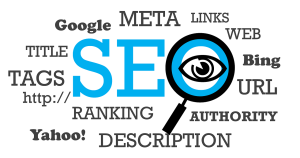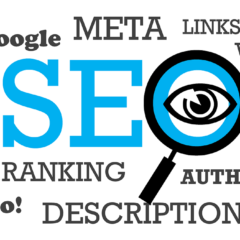Why You Should Change Your Thinking About Dental SEO and What You Should Do Now via Your Dental Website
 Right off the top, I give credit where it’s due. Before I give my shout-out, I want you to take a deep breath and repeat after me, “Dental SEO is not dead, it’s just evolved.”
Right off the top, I give credit where it’s due. Before I give my shout-out, I want you to take a deep breath and repeat after me, “Dental SEO is not dead, it’s just evolved.”
I give due credit to Ryan Stewart for the stream of thought in this post. His related article on Moz.com was spot on.
SEO isn’t dead…just different.
Perhaps you’re a bit worried. The thought of SEO being mentioned alongside the word, “dead” can cause a collective gasp.
Why?
Like most, you might have banked your dental website rankings on dental keywords stuffed throughout every page on your dental website. From the home page to your contact page perhaps you dropped some cash with an SEO-centric web design firm who all but guaranteed you a top local ranking.
Maybe it’s worked…and maybe it hasn’t.
But that’s not the biggest issue here.
The big deal is – SEO has evolved. How the search engines find and rank you and your content has changed and is changing.
Stewart says, “Google shows search results based on what’s best for the user. We can’t just rank for whatever keywords we want.”
He shares examples of searching terms from “best headphones” to “restaraunts” (in a specific city) to “buy a cheap tv” to “plumbers” (again in a specific city). The results in each example returned no websites on the first page search listings.
What did the search results reveal on the first page? According to Stewart’s examples, it depends.
His “best headphones” search revealed not a single product page. All first page results were articles about headphone types, benefits, pricing, etc.
What about “restaurants” (city specific)? No first page results included a single restaurant website, only review aggregators and Zagat ratings. Below the fold (second pages and beyond) the results featured listicles, reviews, and…again…articles.
“Buy a cheap tv” returned product pages in the top five results. Before you say, “Ah-ha…told you…,” they’re all mega-brands. Stewart confirms something you must understand: you’ll never outrank a brand for those type of keywords (unless you spam it up). And again, guess what, articles not product pages ranked at the bottom of the first page.
Are you seeing a trend here?
What about Stewart’s search example of “plumbers” (city specific)? Again top rankings were review aggregators like Yelp and Google+.
Why you should change your thinking about dental SEO and what you must do now to establish your authority online.
Stewart says two things are happening. 1-Google’s full of data and they’re using it based on what users (e.g. you, me, your patients, clients, etc.) want.
2-Google is moving into the “pay to play” era (like Facebook). They’re capitalizing on the massive revenue that comes from advertising.
(Read Stewart’s complete article here for detailed insight and analysis of this entire trend.)
My main take-away from Stewart’s article is this: content rules!
What does that mean for you and your dental SEO?
1-Listen (more than ever) to your “audience.”
What are they talking about? Concerned about? What services do you provide that solves the problems they face?
- Write to that! And write to it a lot.
- Inform your readers based on what you hear them saying to you via your reviews, surveys, chair side conversations, phone consults, in-office consults, treatment plan questions. You get the idea.
2-Create useful content consistently.
Stop playing the tell-them-everything-on-your-main-webpages game. What do I mean?
The days of burying all your informative “eggs” in your website services “basket” (pages) is done. Why?
People aren’t willing to wade through it. And if they did, it’s often full of too much dental-speak that they numb out and click away from the page.
- Start or re-start your blog/article page. This is your new SEO-friendly platform for valuable keyword relevant content.
- Experiment with podcasts, other forms of social media (Pinterest, Instagram, Periscope), and video (YouTube) content channels. Not all are readers. This will appeal to the audio/visual types.
- Link all content back to your website platform. This increases your search savvy-ness.
I recommend checking out Ryan Stewart’s more thorough and highly practical content on this subject. I agree with the essence of it, SEO isn’t dead but it HAS changed.

